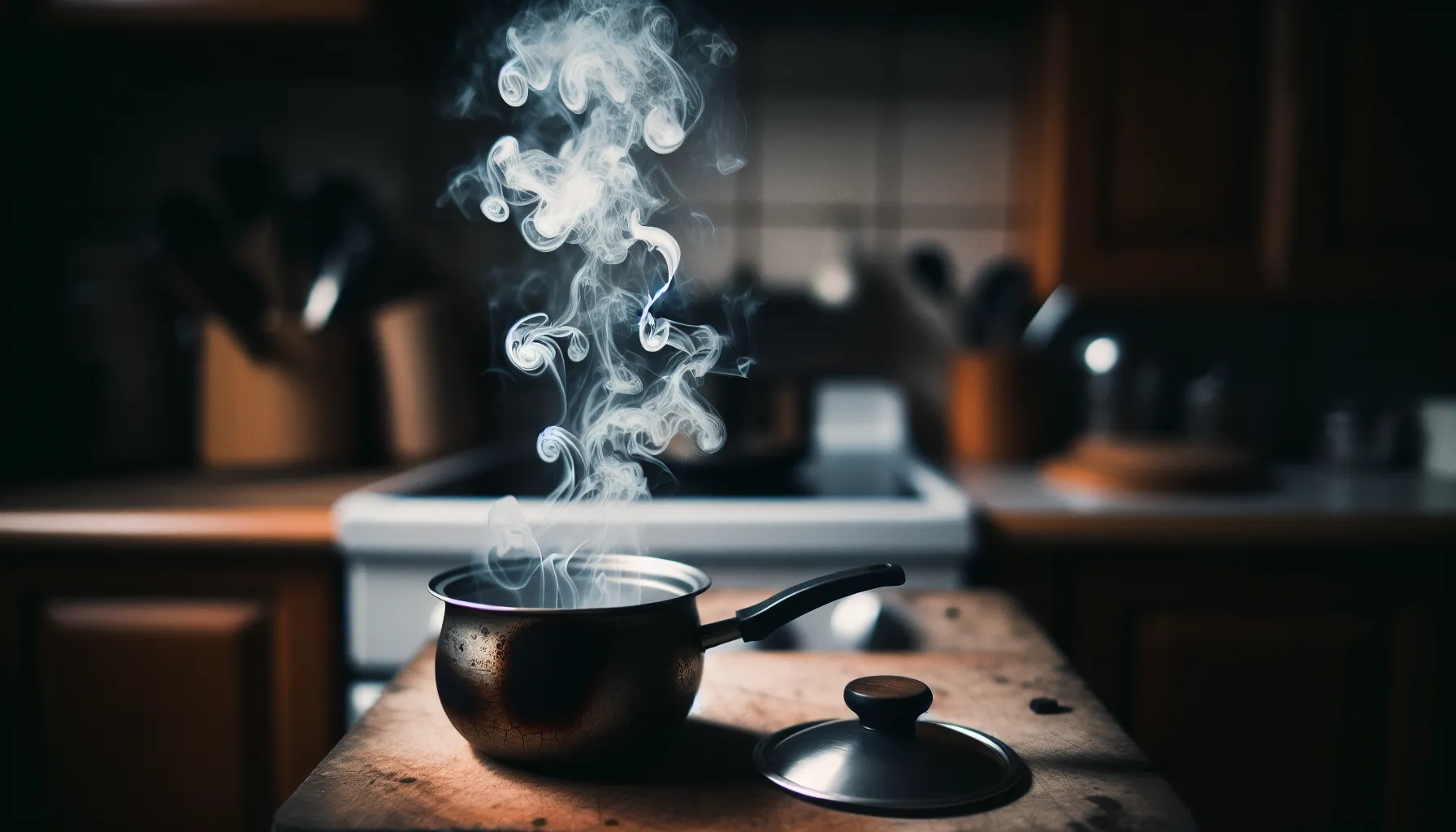How Do You Handle Kitchen Mishaps and Salvage a Meal?
Ever wondered what professionals do when kitchen disasters strike? With insights from a food blogger and an Ecommerce Business Owner, this article reveals how to turn culinary catastrophes into delightful dishes. Learn the art of salvaging meals, starting with removing burnt layers and improvising, all the way to pre-planning and adjusting ingredients. Discover four expert strategies to save a meal when things go wrong.
- Remove Burnt Layers and Improvise
- Trim and Repurpose Burnt Food
- Transform and Adapt Your Dish
- Pre-Plan and Adjust Ingredients
Remove Burnt Layers and Improvise
As a self-taught chef, I can assure you that kitchen mishaps happen to everyone—so take a deep breath and remember that mistakes are a part of the process; the moment you smell burning soup, sauce, or curry, remove the pan from heat, carefully skim off the top layer, and carry on. Does the meal taste overly salty? Balance the flavor with a splash of cream, unsalted broth, or something acidic like lemon juice or apple cider vinegar, depending on what you are making. Are you missing an ingredient? Improvise and swap the missing ingredient for something similar—Greek yogurt for sour cream or use dried herbs instead of fresh. When it comes to overcooked protein, no problem. Slice it thinly and whip up a quick sauce to give it moisture—good as new. Most kitchen mistakes have an easy solution, and if not—well, there’s always pizza!
 Tressa Jamil
Tressa Jamil
Food Blogger, Jamil Ghar
Trim and Repurpose Burnt Food
I am heavily into fitness and do plenty of meal prepping in the kitchen. When things go sideways in the kitchen, and trust me, it happens even with years of meal prepping, I stick to the basics: improvise, adapt, and salvage.
If something burns (like chicken, beef, or veggies), I trim off the scorched parts and repurpose what’s left. A good sauce or seasoning mix can cover a lot of sins. For example, if my roasted veggies get too crispy, I chop them up and toss them into a stir-fry or mix them into a grain bowl.
If I overcook something like rice or quinoa (great with any sort of meat), I’ll turn it into a quick fried rice or add some broth to make it into a soup. And if a meal I made is bland, I’ve learned that lemon juice, fresh herbs, or a sprinkle of good sea salt can work wonders.
 Jeff Michael
Jeff Michael
Ecommerce Business Owner, Supplement Warehouse
Transform and Adapt Your Dish
Sometimes, the dinner you planned doesn’t turn out the way you hoped. Maybe the chicken is dry, or the sauce tastes flat. Don’t panic. Taste what you have, then make a small change. Add lemon or a handful of fresh herbs to wake up dull flavors. Spoon in a little yogurt to smooth rough edges. If the pasta is too soft, bake it with cheese and bread crumbs until it crunches on top.
If all else fails, shift gears. Turn that dry chicken into soup, or shred it for tacos with crisp vegetables and a bright squeeze of lime. There is no need to mourn a ruined dish when you can transform it. The kitchen rewards calm hands and clear thinking. In the worst case, order takeout and call it a night. Tomorrow, you’ll cook again.
 Jake Maslow
Jake Maslow
Owner, Teachers Instruction
Pre-Plan and Adjust Ingredients
In roofing, much like in the kitchen, it’s all about adapting to situations as they unfold. Once, I had a project where an unexpected storm damaged materials right before installation. We quickly pivoted to use a more durable material that was readily available, minimizing project delays. Similarly, if a recipe goes wrong, I look at what’s in the pantry to creatively adjust and refine the dish, using what’s on hand to recover.
This is where pre-planning becomes crucial. Just like inspecting a roof before a replacement, conducting an inventory of your kitchen ingredients can help avoid mishaps. Having a backup recipe or using versatile staples like canned tomatoes or pasta can turn a situation around quickly. I approach both roofing and cooking with the same mindset-always anticipate challenges and be ready to pivot to a solution.
Engagement with the community has taught me the importance of feedback and real-time adjustments. For example, when people at a meeting pointed out a common issue with roof damage, it allowed us to develop improved solutions. This is like tasting as you go in cooking, letting the flavors guide you to the necessary tweaks long before serving a disappointing meal.
 Justin Huber
Justin Huber
Owner, SouthWest Ohio Roof Division
Submit Your Answer
Would you like to submit an alternate answer to the question, “How do you handle kitchen mishaps and salvage a meal when things go wrong?”




